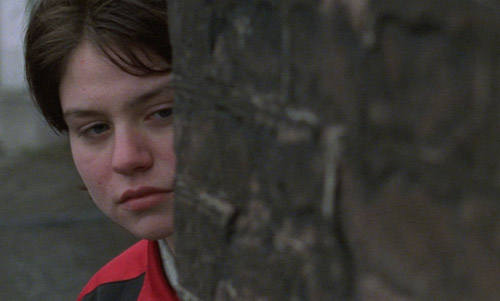
In the follow-up to their first fiction feature, La Promesse (#44 on the 2010 Arts & Faith Top 100), Belgian filmmakers Jean-Pierre and Luc Dardenne wrote and directed Rosetta. The film—lean on plot but heavy on character and form—follows a few days in the life of the titular character, a young woman determined to work for her living while stuck with the burden of caring for her alcoholic mother.
The typical formal conceits of the Dardennes are present in Rosetta. In particular, the value and desirability of the handheld camera becomes abundantly clear, as the camera’s subjective position takes on something of the personality of the lead character. Rosetta’s boundless energy to make something positive happen in her life leaves the camera in constant motion, sometimes even shaking with rage as she storms through life. The energy communicated through this subjective camera style works well to connect the audience with Rosetta’s desperation, making her frustrations that much more understandable to those outside them.
More than anything, Rosetta wants a way to support herself, to work her way out from under the burdens that life has placed upon her. But what can she do when she seems trapped by a lack of opportunity? How is one to live, much less make a living, in such an environment? Rosetta does not simply struggle to get a job. Even when she has one she struggles to make enough money to support her already spare lifestyle. Rather than knock her down permanently, these hindrances drive Rosetta, providing the central drama of the narrative.
After winning the Palme d’Or at the 1999 Cannes Film Festival, Belgian lawmakers applied the title of the film to a labor law controlling how much companies can pay young workers like Rosetta. It isn’t surprising that the profound humanism of Rosetta became a rallying cry for political and social action. More than governments though, Rosetta’s compassionate eye for its characters and the plight of those struggling to support themselves has the power to impact individuals, spurring people in every walk of life to hold out a helping hand to someone who needs picking up. Sometimes, we just can’t make it on our own. —John Adair (2010)
Arts & Faith Lists:
2005 Top 100 — #1
2006 Top 100 — #33
2010 Top 100 — #82